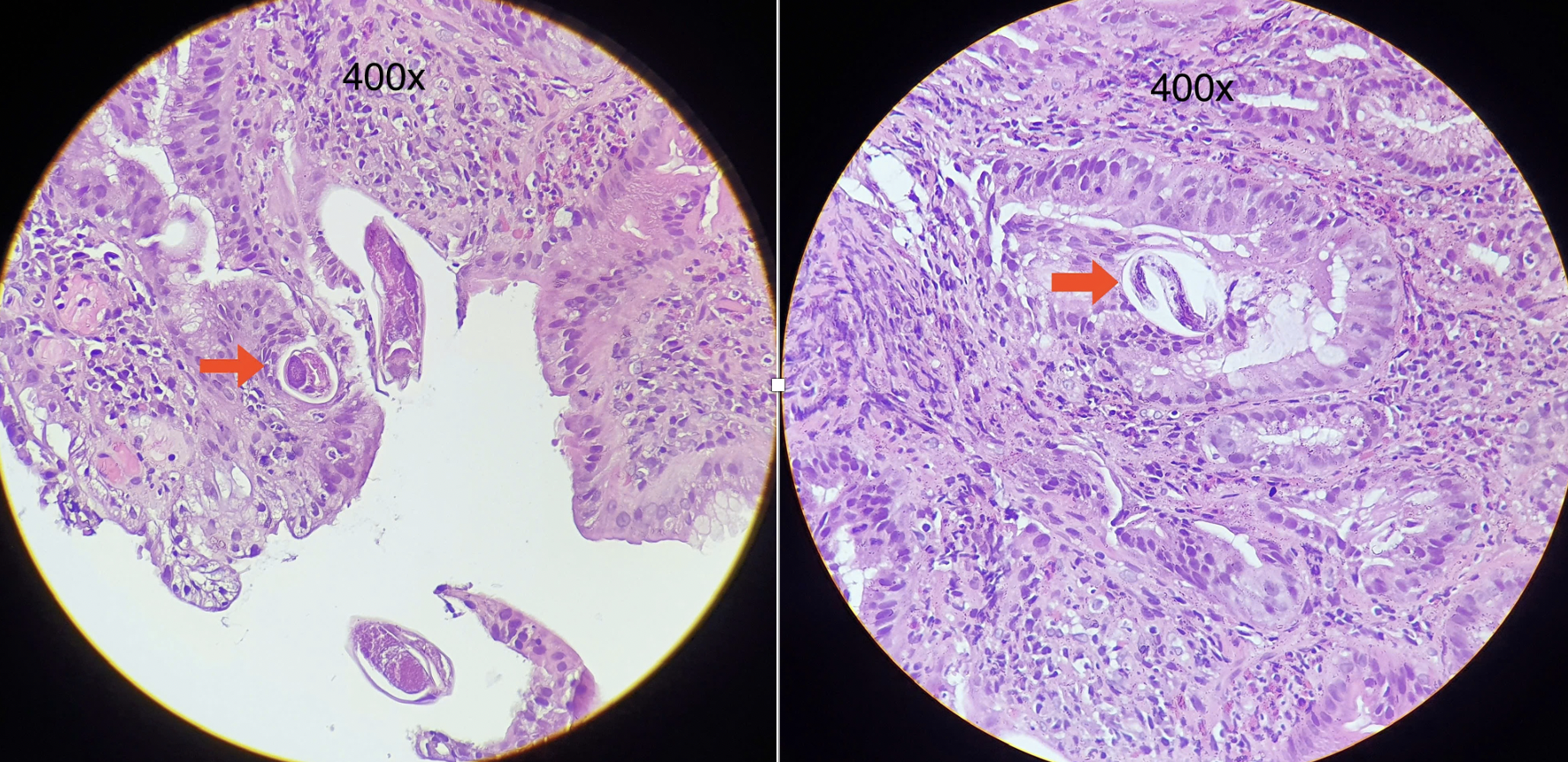On 25/6, Dr. Ha Phuc Tuyen, deputy head of the Gastroenterology Department at Nguyen Trai Hospital, reported that endoscopies of the stomach, duodenum, and colon revealed mucosal damage, ulcers, and edema. Adult strongyloidiasis worms and eggs were found directly in the gastroduodenal mucosa, a finding not widely reported in southern Vietnam's medical facilities.
Following treatment with antiparasitic medication, the patients recovered within 2 to 14 days. This marked a significant improvement after prolonged ineffective treatment. The success resulted from collaboration between the Gastroenterology and Endoscopy departments, enabling the detection of this often-overlooked disease. One patient was admitted for gastrointestinal bleeding from a duodenal ulcer, initially suspected to be caused by H. pylori. However, a biopsy unexpectedly identified strongyloidiasis as the cause.
Strongyloidiasis is a parasitic infection common in tropical regions. It can persist for years without noticeable symptoms. However, if the immune system is weakened, for example, by corticosteroid use, chemotherapy, or organ transplantation, the parasite can cause life-threatening disseminated infections. Prevention, early detection, and treatment are crucial.
"All patients had a history of prolonged corticosteroid use or were undergoing treatment for chronic conditions like asthma, polyarthritis, lung cancer, and liver disease," Dr. Tuyen stated.
Clinical manifestations are often nonspecific, easily mistaken for common digestive or respiratory illnesses. Diagnosis is challenging due to the low positive rate in stool tests, often leading to missed diagnoses without timely biopsies.
In these cases, thorough medical history reviews led doctors to suspect chronic parasitic infection and order appropriate endoscopies. Biopsies of the affected areas revealed the strongyloidiasis worms in the tissue, confirming the diagnosis.
 |
Pathology reveals strongyloidiasis eggs and larvae in a patient's duodenal tissue. Photo: Hospital provided |
Pathology reveals strongyloidiasis eggs and larvae in a patient's duodenal tissue. Photo: Hospital provided
Doctors advise vigilance for strongyloidiasis, especially in individuals with weakened immune systems, prolonged corticosteroid use, or persistent unexplained digestive and respiratory symptoms. Prompt medical attention is recommended for persistent coughs, shortness of breath, or abdominal pain with unknown causes.
Preventive measures include maintaining personal hygiene, washing hands with soap, consuming cooked food and beverages, avoiding raw or undercooked food, wearing footwear when in contact with soil or sand, and seeking screening if suspicious symptoms arise.
Le Phuong












